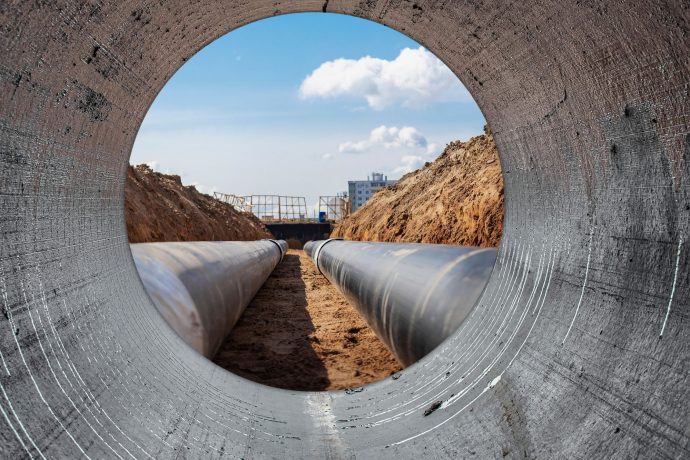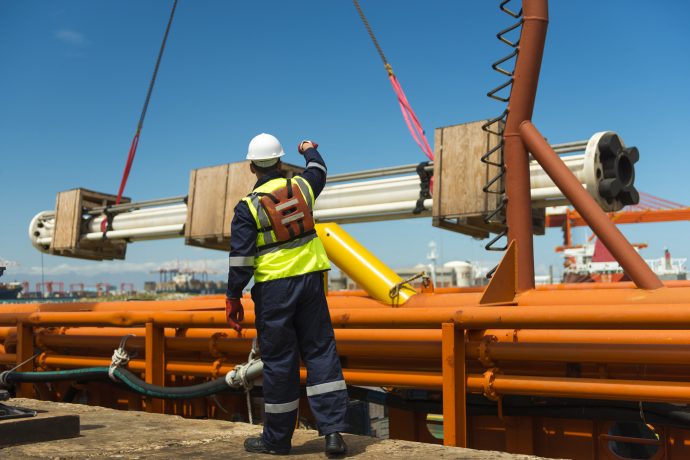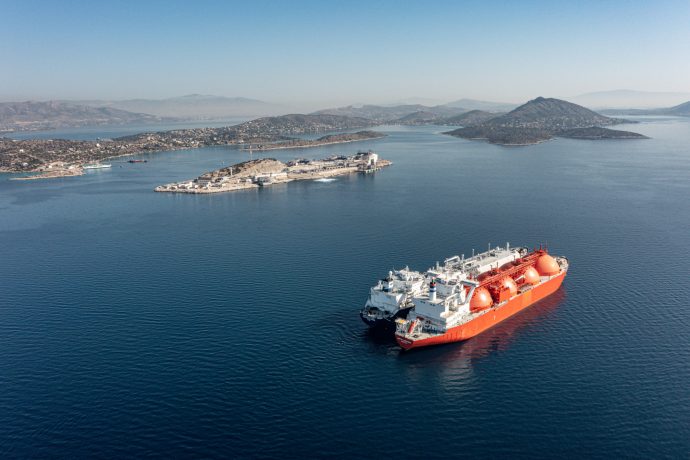To ease price volatility and boost energy security amid the global energy crisis, the European Union is looking to the Eastern Mediterranean as a possible source of natural gas. With large-scale infrastructure projects popping up, the region is looking to improve its own local energy capacity and eventually become a net exporter.
Central to achieving this aim is the EastMed pipeline project: a 1,900 km offshore/onshore natural gas pipeline being built to connect Israel, Cyprus, Egypt and Greece. It is expected to be completed by 2027 with a capacity of transporting 20 billion m³ of natural gas to Europe every year.

But it has not been without its hiccups – not least, the withdrawal of United States support announced in January 2022. The project has highlighted the complexity of offshore gas extraction, production and transportation logistics operations, as well as the many factors that could impact it. An undertaking on such a scale requires significant investment, technical expertise and support to become commercially viable.
Support for offshore gas
GAC’s support for offshore natural gas projects as a leading third-party logistics provider can help overcome the challenges presented by the sometimes volatile and finely balanced geopolitics of the region. With more than 60 years’ experience providing agency and logistics support for gas exploration, development and extraction in the world’s primary gas-producing regions, GAC has the resources and flexibility to put that to work in the East Mediterranean too.

For offshore gas projects, it provides services including drill pipe transportation, rig mobilisation, delivery of specialised heavy equipment and spare parts through an integrated supply chain, as well as agency services for supplies and personnel.
By working with established companies in Cyprus, Egypt, Greece and Turkey, GAC has gained local knowledge and experience that can mitigate challenges that impact offshore gas projects.
“We have supported several customers in establishing and maintaining natural gas bases in several locations across the Mediterranean and the Middle East,” says Kevin Green, GAC’s Business Development Manager, Energy Projects – Europe.
“The experience gained from our involvement in the logistics side of these projects is invaluable, and it gives us a rich vein of global experience and expertise we can draw on to support projects like the EastMed pipeline. Our offices in Cyprus and Greece have been supporting our trusted customers on the feasibility and planning that will be needed for the installation of the EastMed pipeline. We have also supported drilling, seismic and engineering, procurement and construction (EPC) activities offshore Cyprus and Egypt, so we are well versed in the complexities of logistics for offshore gas platforms in the East Mediterranean.”
GAC Greece has supported FSRU and vessel operations – most recently in Revithoussa, west of Athens – with its combination of ship agency, husbandry, logistics and offshore services, from its offices in Piraeus and Thessaloniki, successfully coordinating the often complex discharging operations.

Supply chain challenges
Like many sectors, the offshore industry has been fraught with supply chain challenges in recent years. Something as small as a missing spare part can often hold up a multi-million dollar project which already takes several years to materialise from start to end.
“Global supply chain challenges have led to project equipment and labour shortages for natural gas projects. This has impacted the number and scope of offshore energy projects, as well as raised uncertainties in long-term commercial and investment decisions,” says Simon Morris, GAC’s Group Business Development Manager, Oil & Gas.
One of the biggest take-aways is the value of establishing consolidation hubs to streamline the overall supply chain for offshore projects.
“We have supported key oil and gas drilling campaigns by setting up regional consolidation hubs for inbound logistics in the Middle East, Caspian Sea and the Indian Ocean. This means we can stock costly and critical spare parts that either have a large transportation cost or have a short shelf life,” adds Simon.
“It gives project managers more flexible access to spare parts across an entire region. Not only does this keep costs down, but it also removes the logistics risk of having excess parts in one location and none at another.”